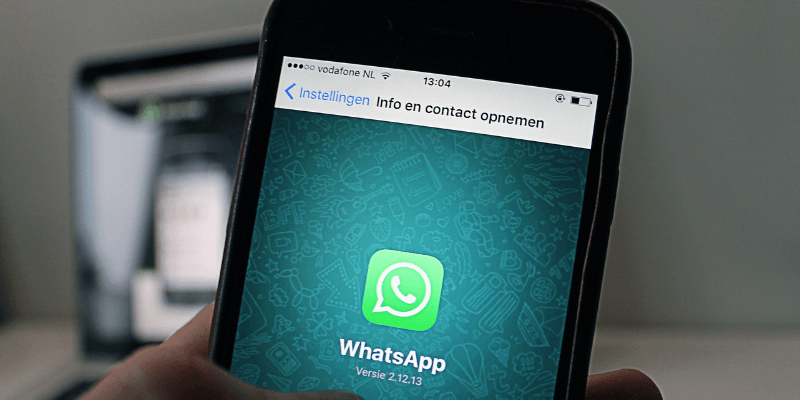Absolutely. In our intertwined digital landscape, the lines between convenience and privacy often blur. WhatsApp, owned by Meta and a colossus in the realm of digital communication, is frequently under the microscope for its security safeguards.

Hi there, I’m Aaron. My odyssey through the vast realms of cybersecurity for over two decades has made me a witness to the ever-evolving landscape of digital communication and its inherent vulnerabilities.
In this article, we navigate the intricate alleys of WhatsApp’s security dynamics together. Let’s embark on an analysis of why WhatsApp can be tracked.
Table of Contents
Key Takeaways
- No digital fortress is impregnable, WhatsApp included.
- Metadata is the silent sentinel, often revealing more than overt messages.
- A user’s vigilance is the cornerstone of their digital fortress.
- Tools and trackers evolve, but so do defense mechanisms.
The Truth About WhatsApp
When you cater to over two billion users, you aren’t just an app; you’re a phenomenon. WhatsApp’s vast user base spans continents, cultures, and languages. It’s a hub where memories are shared, businesses flourish, and ideas take flight.
A massive platform like that is also a magnet for entities with malevolent intentions. Be it cybercriminals, hackers, or even regulatory bodies – all eyes are on WhatsApp.
The Double-Edged Sword of End-to-End Encryption
WhatsApp’s most touted security feature is its end-to-end encryption. End-to-end encryption is a sophisticated mechanism to ensure that only the sender and the receiver can access the messages.
Beyond the encrypted messages lie the realms of metadata. This includes the time stamps of your messages, the recipients, and even your online status. In the hands of seasoned analysts, this data becomes a narrative, telling tales more vivid than the messages themselves.
Additionally, someone can gain access to the content of your messages, whether through phishing or malware. Using that data, they may be able to build a rich understanding of where you’ve been, when, and what you were doing.
External Entities and Their Gaze
The digital landscape is rife with tools claiming to pierce through WhatsApp’s veil. Their modus operandi ranges from QR code manipulations to dubious software promising to reveal all. More often than not, those tools are fabricating their capabilities.
Beyond these tools, there are more sophisticated entities at play. Intelligence agencies, with their vast resources, have often been rumored to have backdoors into many platforms. Whether these speculations hold water is a topic of fervent debate among cybersecurity experts.
In short, your location data may be captured by third parties and you have no way of knowing or controlling that.
The User: The First and Last Line of Defense
Here’s a stark reality: the most robust security protocols falter if you, the user, are careless. Simple practices, like not leaving your phone unattended, logging out from shared devices, and refraining from clicking on suspicious links, can exponentially enhance security.
You can also use features like two-factor authentication and biometric locks to deter most hacking attempts. I’d also recommend using unique passwords, not reused between services. Those passwords should also be complex and long. The longer the password, the more difficult it is to compromise.
The Power and Perils of Backups
Many people rely on cloud backups for WhatsApp chats. While those backups ensure message resilience and availability, they also become potential areas of vulnerability. If your cloud storage is compromised, your chat backups are at risk. Additionally, if any of the devices on which you use WhatsApp are compromised, then your chat history and backups are at risk.
Regularly monitoring linked devices, checking backup settings, and being aware of where your data resides are pivotal to protecting your location information.
Data Privacy
WhatsApp’s story is a chapter in the voluminous tome of digital privacy. Where people’s lives are effectively digital tales, every app you use, every platform you sign up for, and every device you purchase adds a line to that story.
Each of those stories can potentially be read by someone else—benevolent or nefarious. The digital age’s convenience comes with a price. Often, that price is a tradeoff: eternal vigilance or eternal agnosticism. Either you want to protect your data or you don’t care.
FAQs
Here are some answers to commonly asked questions related to WhatsApp tracking.
Can Someone See My WhatsApp Without Me Knowing?
Yes. If they have your phone number, they may be able to see your WhatsApp information. This is especially true if you added them on a chat and may not want them to see subsequent comments in that chat.
How Will I Know if Someone is Tracking Me on WhatsApp?
You may not if it’s law enforcement, but if it’s an individual, you probably can. Look at WhatsApp Web and currently active users. If you see an active user in the list you didn’t otherwise anticipate, they may be watching what you post and do.
Can FBI track WhatsApp?
Probably. At a minimum, the FBI can obtain a warrant to scrape your WhatsApp information. While it’s billed as being encrypted end-to-end, research has shown that content can be intercepted by other applications and that certain kinds of encryption can be broken.
In Conclusion
Platforms like WhatsApp constantly tread a tightrope at the crossroads of innovation and privacy. While WhatsApp innovates to offer enhanced features, the onus of personal privacy also significantly lies with you, the users. In this grand digital environment, being informed, vigilant, and proactive are not just virtues but necessities.
Seen something unusual on your WhatsApp? Or perhaps you’ve got a tip to share? Dive into the conversation below. Let’s fortify our digital bastions together.
